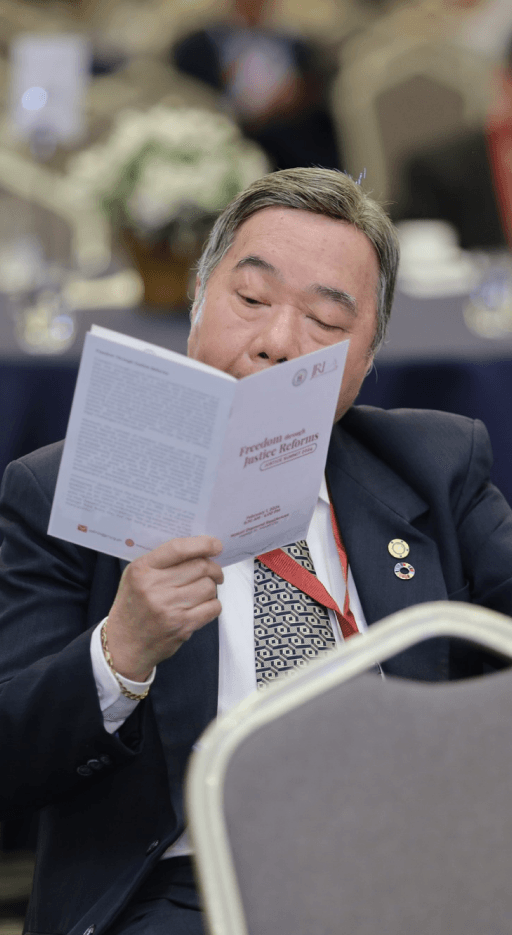DOING BUSINESS
IDENTIFYING YOUR BUSINESS TYPE


SOLE
PROPRIETORSHIP
- is owned by an individual that has full control and authority over the business and has exclusive ownership and liability.
- “individual” is referred to as “sole proprietor”
TYPES
- Domestic-owned Sole Proprietorship
- Foreign-owned Sole Proprietorship
- meet the minimum capital requirement of USD 200,000.00 and their proposed business activities do not fall under the areas of investment listed in the Foreign Investment Negative List (FINL)
PARTNERSHIP
- General Partnership
- a business arrangement where two or more people agree to share the business’s profits, assets, and liabilities, people referred to as “general partners” can conduct daily management
- Limited Partnership
- liability is limited to person’s extent of investment, partners here are referred to as “limited partners” meaning no authority or input towards the operations and management the company
CORPORATION
- “is an artificial being created by operation of law, having the right of succession and the powers, attributes, and properties expressly authorized by law or incidental to its existence” (SEC)
TYPES
- Stock Corporation
- “a corporation with capital stock divided into shares and authorized to distribute to the holders of such shares, dividends or allotments the profits of the business based on equity of shares” (Philippine Business Registration)
- Domestic
- at least five (5) but not more than fifteen (15) incorporators who must have individual subscriptions of at least one (1) share in the company
- Domestic
- Foreign
- 40.01% to 100% is defined as foreign-owned and is subject to certain provisions under the Foreign Investments Act.
- must be granted a License to Operate in the Philippines as a business entity
- required to appoint one (1) resident agent who shall accept all summons or legal processes served
- Foreign
- Non-Stock Corporation
- can be for the following purposes: educational, cultural, charity, religious, civic service; and other similar purposes
- no generation of profit or stocks
- can be for the following purposes: educational, cultural, charity, religious, civic service; and other similar purposes
RETAIL TRADE
ENTERPRISE
- paid-up capital of approximately USD 500,000 (PHP 25,000,000)
- minimum investment requirement per store of approximately USD 200,000 (PHP 10,000,000) applies if more than through more than one physical store
EXPORT
ENTERPRISE
- “wherein a manufacturer, processor or service (including tourism) enterprise or trader exports 60% or more of its output, or such purchases.” (Foreign Investments Act)
COOPERATIVE
- “is an autonomous and duly registered association of persons, with a common bond of interest, who have voluntarily joined together to achieve their social, economic and cultural needs and aspirations by making equitable contributions to the capital required, etc.” (Cooperative Development Authority)
TYPES
- Credit Cooperative
- Consumer Cooperative
- Service Cooperative
- Producers Cooperative
- Cooperative Bank
- Multi-Purpose Cooperative
More info can be found here.
HOW TO REGISTER YOUR BUSINESS


HOW TO REGISTER
SOLE PROPRIETORSHIP
1. REGISTER BUSINESS NAME
- Register your business name with DTI and get Certificate of Registration
2. REGISTER WITH BARANGAY OFFICE
Register where your business will be located and acquire Barangay Certificate of Business Registration
*1-3 working days
3. REGISTER WITH MAYOR'S OFFICE
Register with the appropriate Mayor’s Office and acquire a Mayor’s Permit.
*at least 1 week
4. REGISTER WITH BIR
Register and acquire Certificate of Registration with Bureau of Internal Revenue (BIR)
*3 working days
5. Acquire CAEB (FOR FOREIGNERS ONLY)
Acquire a Certificate of Authority to Engage in Business in the Philippines (CAEB)
*7 working days; must be done BEFORE the other steps
6. FOR EMPLOYERS, REGISTER WITH SSS, PHILHEALTH, AND PAG-IBIG
- For SSS Employer Registration
Click here - For Philhealth Employer Registration Click here
For Pag-Ibig Employer Registration. Register through:
- DTI via the Philippine Business Registry System (PBRS); or
- through SEC via the Integrated Business Registration System (IBRS)
HOW TO REGISTER
PARTNERSHIP & CORPORATION
1. REGISTER WITH SEC
- Register your business name with SEC via ESPARC and get Certificate of Registration
2. REGISTER WITH BARANGAY OFFICE
Register where your business will be located and acquire Barangay Certificate of Business Registration
* 1-3 working days
3. REGISTER WITH MAYOR'S OFFICE
Register with the appropriate Mayor’s Office and acquire a Business Permit.
*at least 1 week
4. REGISTER WITH BIR
Register and acquire Certificate of Registration with Bureau of Internal Revenue (BIR)
*3 working days
5. FOR EMPLOYERS, REGISTER WITH SSS, PHILHEALTH, AND PAG-IBIG
- For SSS Employer Registration
Click here For Philhealth Employer Registration Click here
For Pag-Ibig Employer Registration. Register through:
- DTI via the Philippine Business Registry System (PBRS); or
- through SEC via the Integrated Business Registration System (IBRS)
HOW TO REGISTER
RETAIL TRADE ENTERPRISE
1. REGISTER WITH SEC
- Register your business name with SEC via ESPARC and get Certificate of Registration
2. REGISTER WITH BARANGAY OFFICE
Register where your business will be located and acquire Barangay Certificate of Business Registration
* 1-3 working days
3. REGISTER WITH MAYOR'S OFFICE
Register with the appropriate Mayor’s Office and acquire a Business Permit.
*at least 1 week
4. REGISTER WITH BIR
Register and acquire Certificate of Registration with Bureau of Internal Revenue (BIR)
*3 working days
5. FOR EMPLOYERS, REGISTER WITH SSS, PHILHEALTH, AND PAG-IBIG
- For SSS Employer Registration
Click here For Philhealth Employer Registration Click here
For Pag-Ibig Employer Registration. Register through:
- DTI via the Philippine Business Registry System (PBRS); or
- through SEC via the Integrated Business Registration System (IBRS)
HOW TO REGISTER
EXPORT ENTERPRISE
1. REGISTER WITH CPRS
- Register with the Client Profile Registration System (CPRS) through the Philippine Exporters Confederation
*15 working days
2. REGISTER BUSINESS NAME
Register your business name with SEC via ESPARC and get Certificate of Registration
*30 working days
3. REGISTER WITH BARANGAY OFFICE
Register where your business will be located and acquire Barangay Certificate of Business Registration
*30 working days
4. REGISTER WITH MAYOR'S OFFICE
Register with the appropriate Mayor’s Office and acquire a Business Permit.
*at least 1 week
5. REGISTER WITH BIR
Register and acquire Certificate of Registration with Bureau of Internal Revenue (BIR)
*14 working days
6. FOR EMPLOYERS, REGISTER WITH SSS, PHILHEALTH, AND PAG-IBIG
- For SSS Employer Registration
Click here For Philhealth Employer Registration Click here
For Pag-Ibig Employer Registration. Register through:
- DTI via the Philippine Business Registry System (PBRS); or
- through SEC via the Integrated Business Registration System (IBRS)
RELEVANT LAWS AND LEGISLATIONS

The Civil Code, also known as Republic Act No. 386, is the general legislation that covers property and family-related laws in the Philippines.
The Consumer Act of the Philippines, also known as Republic Act No. 7394, contains laws in which the primary purpose is for the protection of consumers against unfair or deceptive sales practices, acts, and safety hazards.
The Electronic Commerce Act of 2000, also known as Republic Act No. 8792, tackles the "use of Information and communications technology in official transactions of the public and of the government", including legal recognition of electronic documents, digital signatures, and related penalties or violations.
The Intellectual Property Code of the Philippines, also known as Republic Act No. 8923, covers the use of intellectual property and its aspects, registration, policies, rules, and related penalties and violations. This Act also covers the responsibilities, jurisdiction, and establishment of the Intellectual Property Office.
The Labor Code of the Philippines, also known as Presidential Decree No. 442, as amended, details the law, penalties, violations, rules, and other social and labor laws for employment, labor, and development.
The Social Security Act of 1997, also known as Republic Act No. 8282, is details laws pertaining to the social security system and the relevant government office in charge of monitroing said system.
The National Health Insurance (NHI) Act of 1995, also known as Republic Act No. 10606, details the government's efforts and main legislation towards the development of the national health system.
The Home Development Mutual Fund Law of 2009, also known as Republic Act No. 9679, is the main legislation towards the development and national "tax-exempt mutual provident savings system."
The Anti-Money Laundering Act of 2001, also known as Republic Act No. 9160, details the crime of money laundering and related violation, penalties, and rules pertaining to the type of crime.
The Anti-Red Tape Act of 2007, also known as Republic Act No. 9485, is the effort to improve government service efficiency, reduce bureaucracy, graft, corruption, and related rules, provisions, penalties, and violations.
The Ease of Doing Business and Efficient Government Service Delivery Act of 2018, also known as Republic Act No. 11032, is "s an act that aims to streamline the current systems and procedures of government service."
The Alternative Dispute Resolution Act of 2004, also known as Republic Act No. 9285, institutionalizes the alternative dispute resolution system in the Philippines with the implementation of the respective government office.
The Barangay Micro Business Enterprises (BMBE) Act, also known as Republic Act No. 9178, details the "establishment of BMBEs, providing incentives and benefits therefor, and for other purposes."
The Revised Corporation Code of the Philippines, also known as Republic Act No. 11232, includes revisions including the establishment of one-person corporations, electronic filing and monitrong, additional or revised rules of business establishments, etc.
The Magna Carta for Micro, Small and Medium Enterprises (MSMEs), also known as Republic Act No. 9501, details the programs towards assisting and developing MSMEs, and for other purposes.
Philippine Competition Act, also known as Republic Act No. 10667, is the " primary competition law of the Philippines for promoting fair competition in the marketplace and protecting well-being of consumers in the process."

